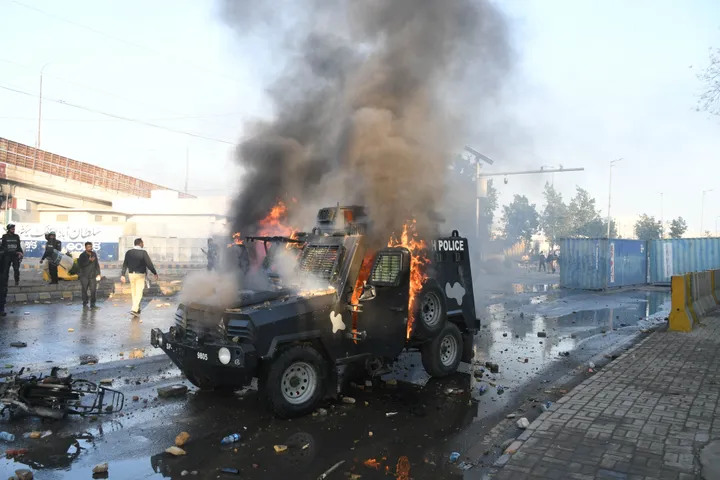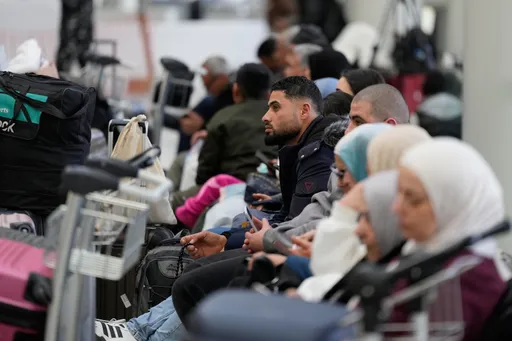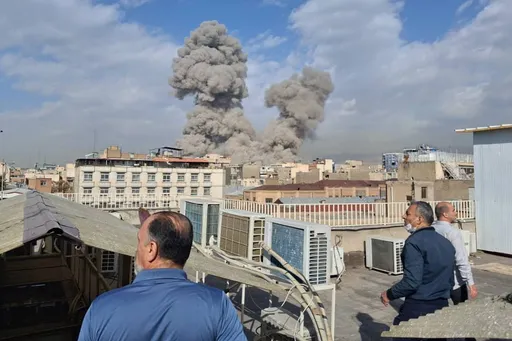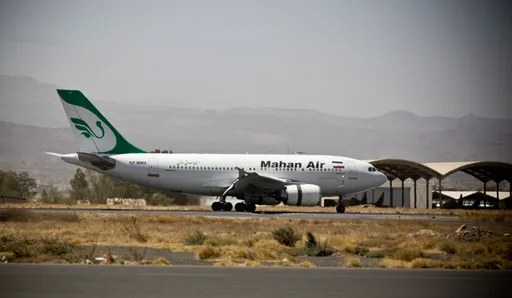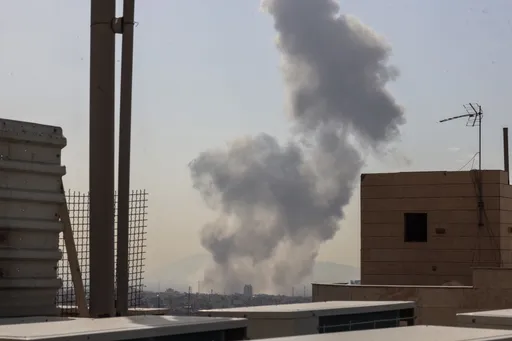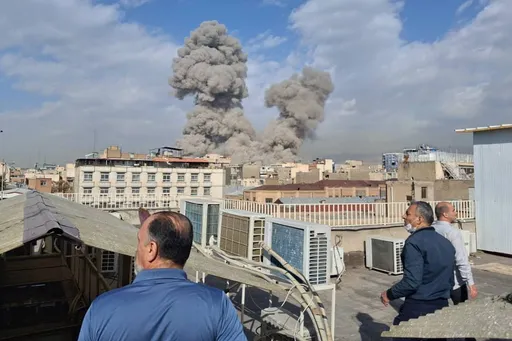Amid increasing tensions in the occupied West Bank and Israel, health workers in Gaza have been fighting their own struggle to procure vital medical equipment for hospitals in the beleaguered coastal territory.
Earlier this week, a convoy of about 25 ambulances from Gaza drove along the Israeli border to protest import restrictions on medical equipment that the Palestinian health ministry says are crippling hospitals in Gaza.
“Preventing the entry of medical devices means the slow death of Gaza patients,” read a banner on one of the ambulances in the convoy. “Medical equipment is crumbling,” another said.
As part of its fifteen-year land, sea and air blockade of Gaza, Israel bans imports of so-called dual-use goods – items that it says could be used for military purposes.
According to Ashraf al Qudra, a spokesman for the health ministry, the demonstration came after Israel prevented four mobile X-ray machines from entering Gaza, according to the health ministry, in addition to equipment used to treat stroke patients and those in intensive care.
The restrictions “expose patients of oncology, heart, strokes, complex fractures and intensive care to health risks,” Qudra said, adding that importing spare parts for old machines was also an issue.
Israel has refuted the criticism and said that Hamas and other Palestinian groups were “systematically and cynically taking advantage of humanitarian and civilian shipments of equipment and goods for terrorist purposes”.
COGAT, the Israeli defence ministry body responsible for Palestinian civil affairs, said X-ray machines were on its list of items which could have a military purpose but medical requests were considered.
Over the past year, Israel has “approved dozens of requests for X-ray machines shipments into Gaza, including both new machines and spare parts for existing ones,” COGAT said.
No access to life-saving care
A joint report published earlier this year by the UK-based Medical Aid for Palestinians (MAP) and Gaza’s Al Mezan Center for Human Rights highlighted how “stifling restrictions” and “repeated military attacks” have damaged Gaza’s medical system, “routinely” stopping patients from accessing “essential and potentially life-saving care”.
The report points out that medical equipment and components are frequently blocked from entering Gaza, and healthcare staff are routinely prevented from travelling out of the besieged enclave for training.
Many vital services are therefore unavailable inside Gaza, and patients must be referred to hospitals in the occupied West Bank, including occupied East Jerusalem, or abroad. But in 2021, the report points out, 36 percent of more than 15,000 requests to the Israeli authorities for health travel permits were either rejected, delayed or received no response.
Densely-populated Gaza is home to some 2.3 million residents, the majority of whom live in poverty, according to the World Bank.


